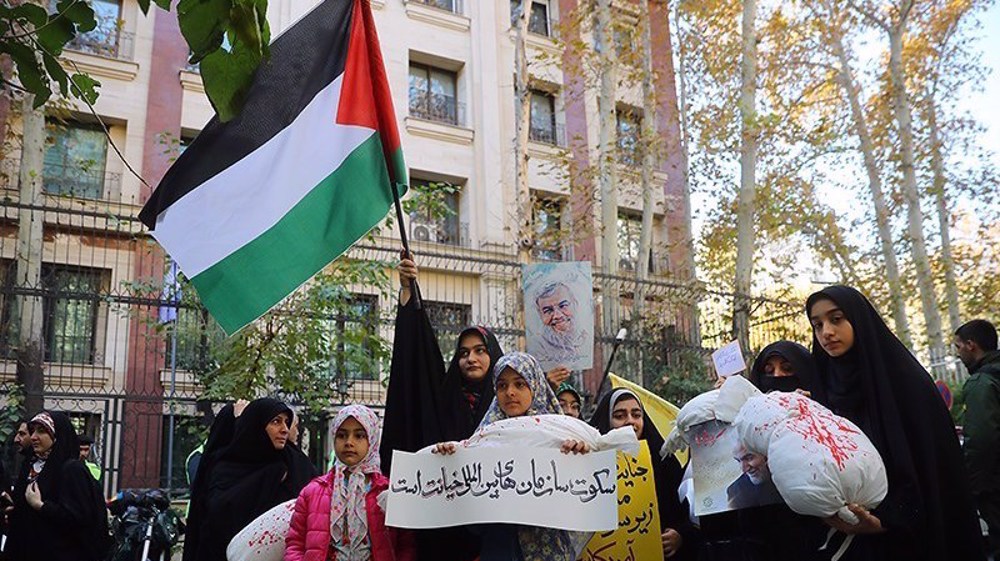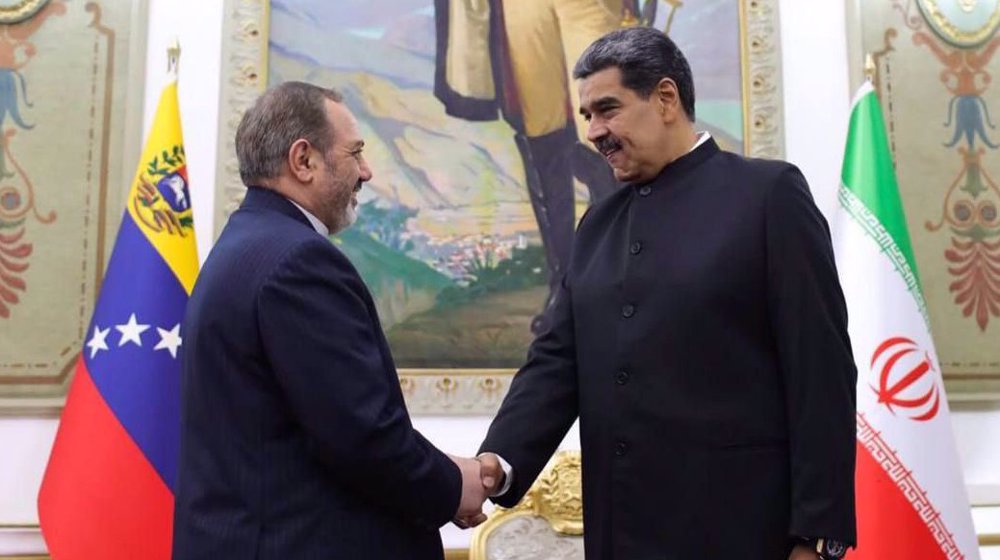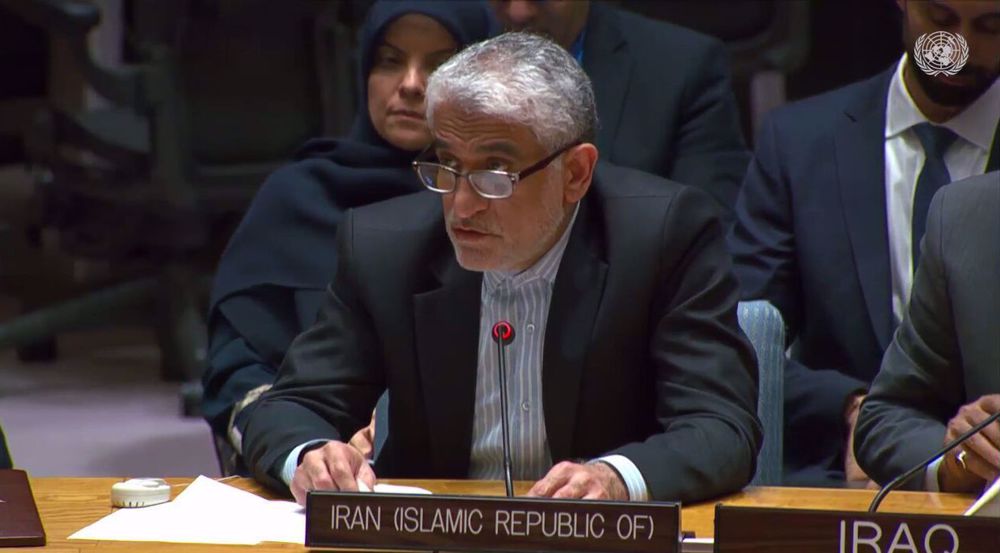Iran FM slams Trump’s remarks on Tehran attacks as ‘repugnant’
Iranian Foreign Minister Mohammad Javad Zarif has slammed the US president’s comments on Tehran terror attacks as “repugnant” after Donald Trump pointed the finger of blame at Iran itself, in a reaction which was met with criticism even at home.
“Repugnant WH (White House) statement & Senate sanctions as Iranians counter terror backed by US clients. Iranian people reject such US claims of friendship,” Zarif tweeted on Thursday.
On Wednesday, Trump offered contradictory comments over the twin attacks in Tehran, on the one hand offering solace and on the other blaming the victim for the deadly operation claimed by Daesh Takfiri terrorists.
The US president pointed the finger at Tehran itself, arguing that victims are sponsors.
“We underscore that states that sponsor terrorism risk falling victim to the evil they promote,” claimed Trump.
Read more:
The State Department had initially released a more benign statement on Wednesday, in the wake of the attacks in Iran’s Parliament (Majlis) and the mausoleum of the late founder of the Islamic Republic Imam Khomeini, which left at least 17 people dead and nearly 50 others injured.
“The depravity of terrorism has no place in a peaceful, civilized world,” the statement by State Department spokeswoman Heather Nauert said.

Trumpian foreign policy: Flawed & adrift
Meanwhile, Richard Haass, who was a former senior employee at the US State Department and is now the head of the Council on Foreign Relations, has criticized the White House statement regarding the terrorist attacks in Iran, pointing to a possible schism among the staffers who helped draft it.
“WH statement on Iran terror, which after condolences says Iran deserved it, is result of divided staff drafting w/o smart clear guidance,” Haass wrote on his Twitter page on Wednesday.
He then said that a journalistic investigation of the process behind the drafting of the statement would shed light on the Trump administration’s political flaws.
Earlier on Wednesday, and as the attacks were unfolding in the Iranian capital, Haass had said in another tweet — a “Note to POTUS” — that the US had to condemn the attacks in Tehran.
Also criticizing Trump’s stance on Tehran attacks was Democratic Senator Chris Murphy of Connecticut, who expressed surprise at the US president’s “sympathy/insult statement” in a Twitter post.
“Btwn inexplicable anti-Qatar rants & bizarre Iran sympathy/insult statement, Trump Middle East policy coming fully off the rails this week,” read the post.
The White House’s reactions also drew criticism from Washington DC-based non-profit organization, National Iranian American Council, which voiced support for the people of Iran in the wake of terror.
“We underscore that administrations that cannot empathize with human suffering risk losing their humanity, and presidents that cannot genuinely recognize victims of terrorism are incapable of leading the fight against terror,” it added.
Meanwhile, the United States Congress has started work on imposing extra sanctions against Tehran, partly for what the bill describes as Iran’s “support for acts of international terrorism.”
The GOP-controlled Senate acted in a procedural vote to advance the new set of sanctions against Iran despite calls by Democrats to delay the vote.
Key Democratic figures such as Vermont Senator Bernie Sanders and California Senator Dianne Feinstein called for a delay in the vote out of respect for the fallen in the wake of the attacks but to no avail.
“On a day when Iran has been attacked by ISIL (Daesh), by terrorism, now is not the time to go forward with legislation calling for sanctions against Iran,” Sanders said in a statement.
“Today when they are mourning, when they are dealing with the shock of a terrorist attack, today is not the day to go forward with this piece of legislation,” it added.
Iran to launch ‘new, advanced’ centrifuges in response to IAEA resolution: AEOI
Yemen fires hypersonic missile at Israeli airbase
VIDEO | New Delhi chokes under toxic smog as air quality remains at hazardous levels
VIDEO | Press TV's news headlines
VIDEO | ICC's arrest warrant for Netanyahu to worry Western politicians: Former British diplomat
Iranians protest against Israel after Netanyahu ICC warrant
Germany undecided on complying with ICC arrest warrants for Israeli war criminals
VIDEO | Former FBI agent criticizes US Congress for 'outright corruption'










 This makes it easy to access the Press TV website
This makes it easy to access the Press TV website